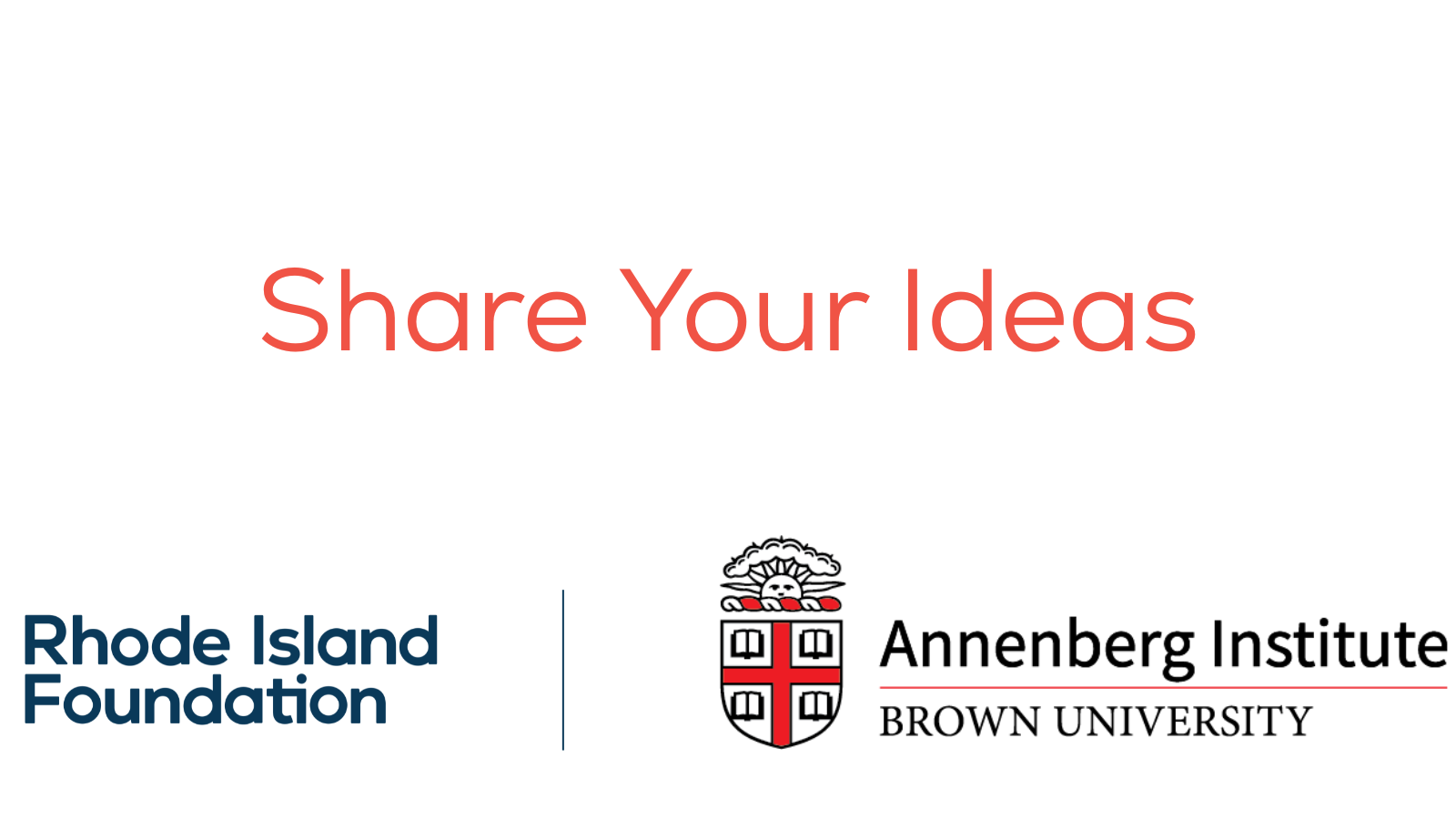
Community news
Funding Public K-12 Education in Rhode Island: Conversation Toolkit
Share your perspective, and big ideas, on what a fair and effective funding formula looks like for Rhode Island’s students and educators.
In late 2024, the Foundation partnered with the nationally recognized Annenberg Institute at Brown University ("Annenberg") to undertake an effort to study, assess, and make recommendations for an improved, equitable public education funding formula in Rhode Island.
We decided to embark on this work because we know that education is the great equalizer. It is the cornerstone of healthy and prosperous communities. It supports growth, creates opportunities, enhances economic mobility, and produces healthy people and strong communities. A thriving state depends on a public education system working equitably and urgently to prepare all students to succeed in life and access pathways to opportunity.
Helping to guide this work is a Blue Ribbon Commission, comprised of local education leaders and trusted community partners. The Commission is co-chaired by David N. Cicilline, president and CEO of the Rhode Island Foundation, and Nora E. Gordon, Distinguished Professor of Public Policy at Georgetown University's McCourt School of Public Policy.
The Commission's work will culminate in a report later in 2025 that includes recommendations for an improved education funding formula for Rhode Island. The report will incorporate feedback from local and national experts, stakeholders, community members, working groups, and the public.
Here's where you come in
The Blue Ribbon Commission, Rhode Island Foundation, and Annenberg are encouraging community groups and individuals to engage in this process by submitting their perspectives on what a fair and effective funding formula looks like.
With this toolkit, available in English and in Spanish, you’ll be able to brainstorm on your own, or convene a conversation with colleagues, friends, neighbors, or relatives to offer your perspective on what a fair and effective public education funding formula looks like in Rhode Island. All submissions from the community will inform the final report.
Read on to learn more about Rhode Island’s education funding formula, to start a conversation on this topic, and to submit your ideas for funding formula improvements.
Share your ideas
Rhode Island has a unique opportunity to develop a new approach to funding public education that promotes equal educational opportunities to every single student in our state. While Annenberg, the Commission, and local stakeholders are drawing on national evidence and their own experience and expertise to inform recommendations, community voices are also needed as part of this effort.
To submit your input on what a fair, effective public education funding formula looks like for Rhode Island, please navigate to the submission form and offer your feedback by Friday, May 30, 2025. The submission form is available here in English, and here in Spanish.
Ideas presented through the submission form will be shared with the Blue Ribbon Commission and Annenberg.
With questions or for assistance using this tool kit please contact Annie Pease at apease@rifoundation.org.
